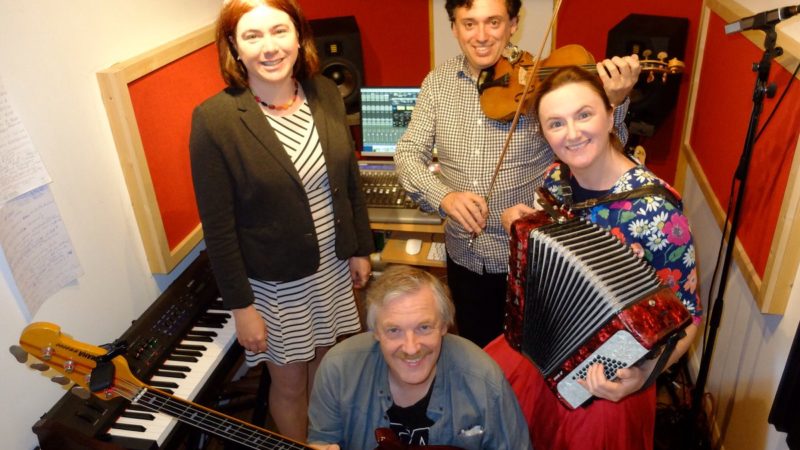

Most professional musicians and performers rely on touring and performing in the European Union to make a living. Being able to travel is essential to keep a music career going. Being able to travel easily is equally important as gigs are often organised at short notice. We need free movement to continue for musicians working in the EU, with minimum administrative burdens.
Before the advent of the EU, travelling in Europe was tough – it was expensive, heavy on the admin, and time-consuming. Musicians who’ve had to go through the visa process for the US know how costly and confusing it can be. We don’t want musicians’ rights in the EU to go backwards, and we don’t want music in the EU – or Britain – to be restricted by unnecessary expense or bureaucratic burdens
Most professional musicians and performers rely on touring and travelling as part of their careers. Many of the Musicians’ Union’s 30,000 members work in Europe either on a freelance basis with orchestras, touring as an individual or group, or working for theatre producers or orchestras on touring productions.
Some performers can be working in several different European countries over the course of a few days, and gigs or tours are sometimes arranged at very short notice, so the possible introduction of work permissions and/or visas for British performers touring and working in Europe could be extremely detrimental. Individuals without representation or financial backing are likely to struggle the most with the extra costs and admin that this might entail.
The vote to leave the EU is already having an impact in this area: the European Union Baroque Orchestra has already left Britain for Antwerp, in part due to concerns over restricted freedom of movement for working musicians.
In a post-Brexit Europe will a European festival find it easier to give the gig to a French band rather than a British band? That is our fear.
The Musicians’ Union (MU) is campaigning for reciprocal free movement for musicians and performers across the EU’s 27 member states in the form of an exemption from visa and work permit rules for performers.
Over the past couple of months, we have been asking MPs and peers to sign up to a pledge – to ensure that professional musicians and performers continue to be able to travel easily across Europe post-Brexit for time-limited activities such as touring and performing with minimum administrative burdens. To date, more than 100 parliamentarians and peers have signed up to our pledge and we will be working with them to help ensure that musicians continue to be able to do their jobs post-Brexit. We also have a change.org petition which has reached 15,000 signatures in less than a week.
Of course freedom of movement is not the only concern that we have associated with Brexit. The majority of copyright law that protects performers’ rights is enshrined in European law, and although we have had assurances that the government does not intend to reduce copyright protections post-Brexit, there are as yet no guarantees on that front.
Equally, the arts currently receive a great deal of funding from the EU. The loss of European social funds for arts organisations is going to hit particularly hard. There are a number of regional music organisations that have been sustained by European Social Funding (ESF) that will see that money cease with very little chance of the shortfall being picked up by local authorities or central government. During 2014- 2020, the ESF and European Regional Development Fund were due to invest around €11.8bn across the UK. How much of that money we will still receive remains to be seen.
The MU was vehemently against Brexit right from the start, not just for the reasons I have listed so far, but because it threatens the whole culture of our country. Music, and the performing arts more generally, rely on exchange of ideas and interaction between performers of different nationalities. Music flourishes in an open world with no borders – not a closed off island that looks inward on itself. Many of our members are themselves European citizens who have chosen to base themselves in Britain. They contribute massively to the culture, and the economic success, of our country.
The future looks bleak. And at the MU we would dearly love to see more MPs fighting against what most seem to have accepted as an inevitability. But musicians have faced many great challenges in the past, and we will meet this one just the same. My only hope is that we are able to reach an agreement that does not leave musicians, and the culture of our country, poorer.
Isabelle Gutierrez is head of government relations and public affairs at the Musicians’ Union.




More from LabourList
‘If Labour is serious about upskilling Britain, it must mobilise local businesses’
Stella Tsantekidou column: ‘What are we to make of the Labour Together scandal?’
‘Unitarisation risks weakening local democracy unless communities are put in the driving seat’